Kolkata: Professor Goutam Paul’s first day as the newly elected general president of the Indian Science Congress Association was a declaration of war. He arrived at the headquarters in Kolkata’s Park Circus to find it bolted, locked, and sealed. That was on 1 April. Since then, the conflict between the Government of India and the country’s 110-year-old venerable science organisation has escalated into an all-out battle for control.
Office bearers of the association claim that it is a fight to protect the autonomy of the scientific community against government interference. The Centre, however, has accused it of embezzling government funds and favouritism.
The ISCA is fiercely defending its turf. It’s a fight for prestige, funds, and independence, and it’s playing out in the corridors of power, courts, police stations, and within the ISCA itself. The beleaguered association, which has been increasingly mocked by top scientists for encouraging discussions on “pseudoscience”, has been crossing swords with the Centre for over a year.
“I am the elected general president. They sealed my office and threatened to file a police complaint against me like I was some criminal,” said Paul, a noted physiologist, president of the West Bengal Board of Primary Education, and the former pro-vice-chancellor at Kalyani University. He ripped apart the seals and pasted his name on the door. But he still can’t use his office.
If push comes to shove, ISCA will not hesitate to dissociate from the government and operate as an independent body
-Goutam Paul, ISCA general president
The government of India refuses to recognise the newly elected executive council of ISCA. It cut off the new members’ access to ISCA’s official website. The Department of Science and Technology (DST)—ISCA’s primary funding agency—also sent a notification to all the premier scientific institutes in the country, including the All-India Institute of Medical Sciences (AIIMS), the Indian National Science Academy, and the Jawaharlal Institute of Postgraduate Medical Education and Research (JIPMER), instructing them not to allow any representative of ISCA to be a part of their boards or committees.
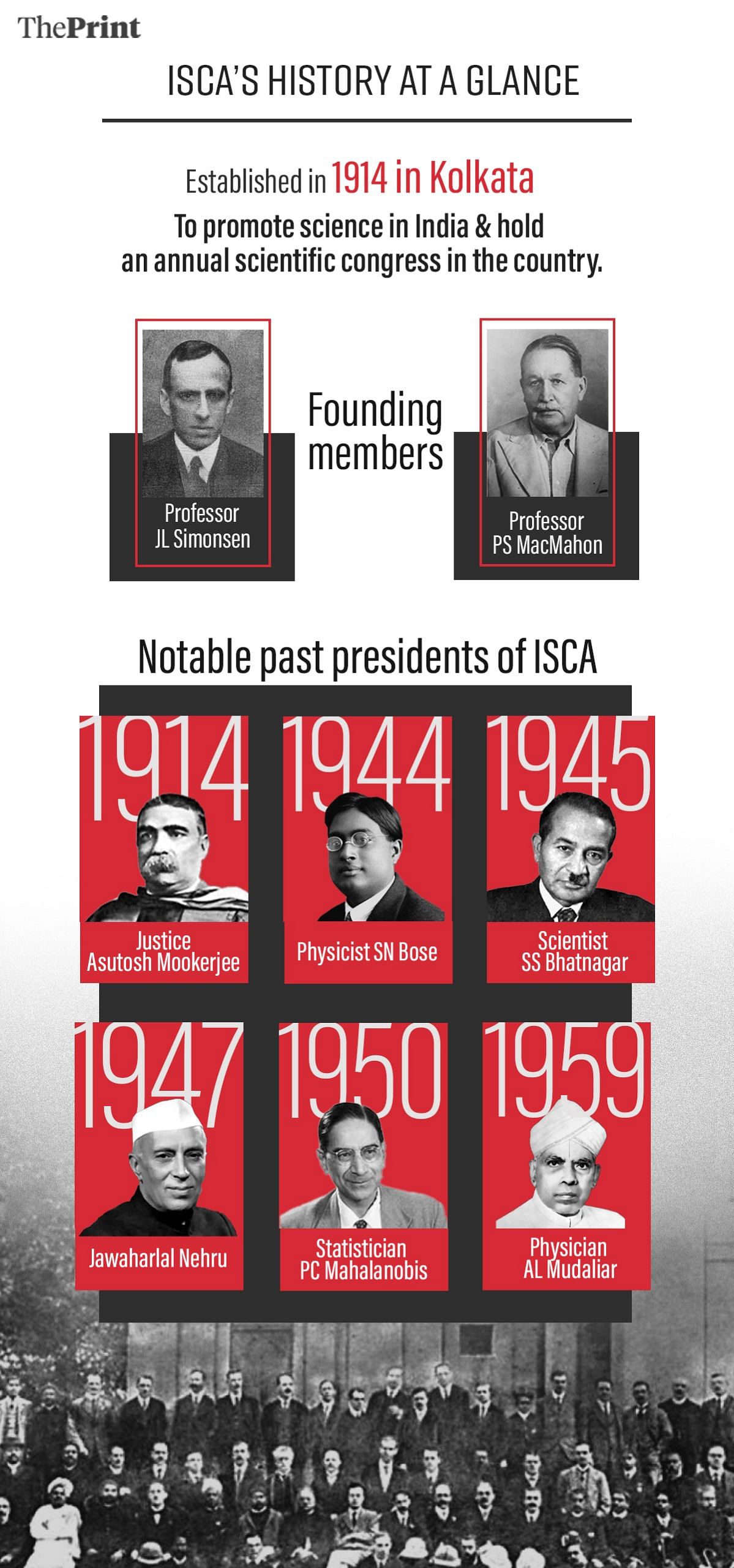
Today, a body that once had India’s top scientists like CV Raman, Shanti Swaroop Bhatnagar, AL Mudaliar, and Homi Jehangir Bhabha at the helm is fighting to retain its autonomy. In this scrimmage between the Centre and the ISCA, the scientific community faces the risk of losing a platform to conduct discussions, exchange ideas, and promote and showcase scientific research to the general public—the original purpose of the association since it was formed in 1914 in pre-independent India.
The allegations of misappropriation of funds have also divided the association, with many scientists and staff siding with the government and demanding a “cleanup” of operations.
But ceding control is not a compromise the newly elected council is willing to make. Last November, ISCA office bearers petitioned the Calcutta High Court to decide on the future of this 100-year-old body and the new council is continuing the battle.
“We will fight till the end to preserve the autonomy of our institution. The government can withdraw its funding, but we will not let them control our operations,” said Paul.
“We are scientists, not beggars.”
Murmurs of discontent that the association is being treated as a “retirement plan” by those at the helm are growing louder.
Also Read: Ahmedabad lab is now predicting India’s climate future. It’s using ‘atomic time machines’
How the rift broke open
Paul has not relinquished his role as ISCA chief. His chamber at the West Bengal Board of Primary Education building is now his temporary office from where he oversees the association.
“If push comes to shove, ISCA will not hesitate to dissociate from the government and operate as an independent body,” he warned.
A major public sign of a rift between ISCA and the government surfaced in January this year when the Indian Science Congress—an annual conference hosted by the association—was cancelled. It sent ripples of shock across the scientific community. The only other years when the Science Congress was not conducted were in 2021 and 2022 because of the pandemic.
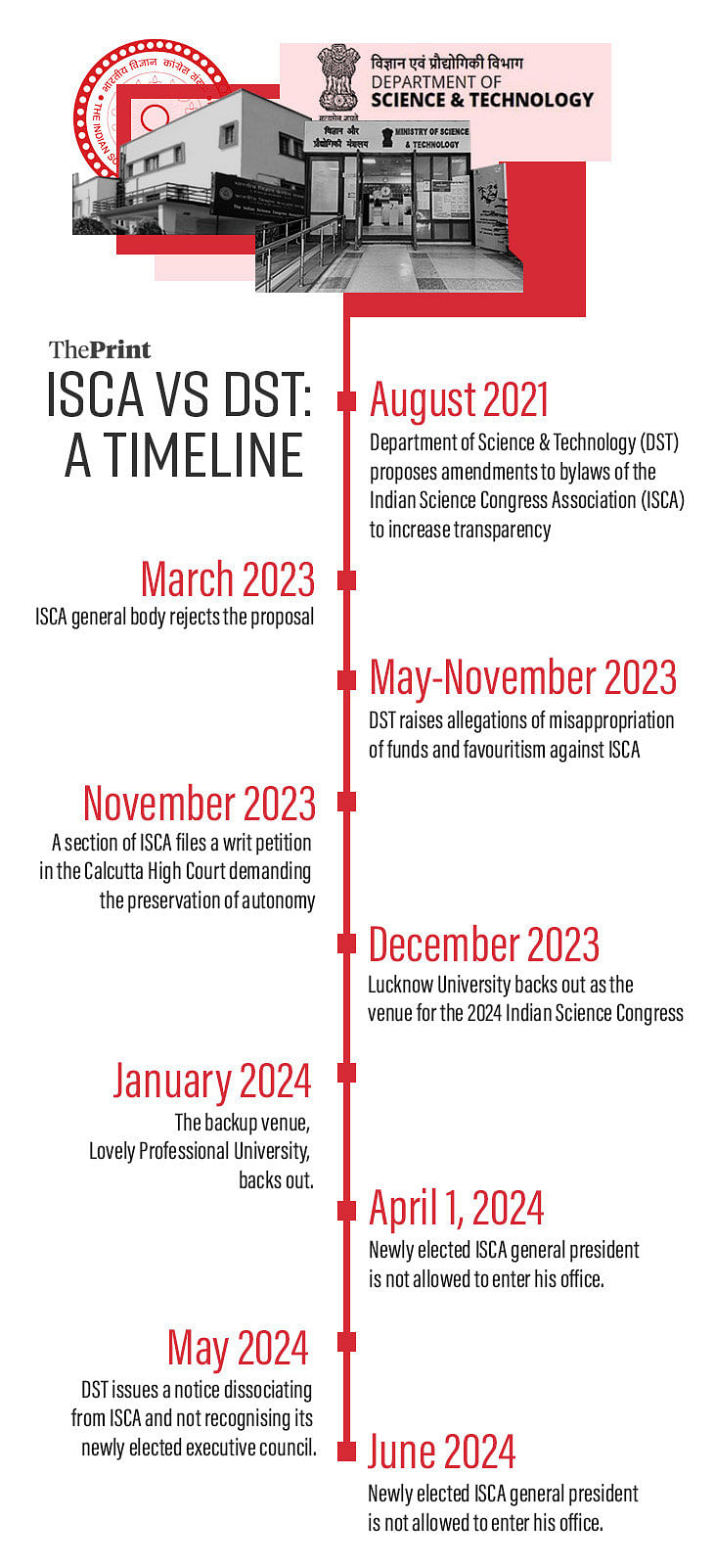
Every year, the Department of Science and Technology releases around Rs 5 crore to ISCA. A large chunk of the funds is utilised in organising the annual Indian Science Congress, a five-day gathering of scientists and science enthusiasts organised between January 3 and 7. The country’s Prime Minister inaugurates this event. The last Science Congress was held in Nagpur in 2023 and was virtually inaugurated by Prime Minister Narendra Modi.
The cancellation of the conference this year was the culmination of a more than year-long disagreement with ISCA, said a senior official from the Department of Science and Technology, alleging that the ISCA council was misappropriating government funds under the cover of autonomy. Anomalies were first spotted in 2021, according to him.
“We started receiving information that the council was indulging in all sorts of misappropriation. DST releases funds to ISCA every year for its operations, paying its employees and conducting the Science Congress, but these funds were being used for sponsoring stays in expensive hotels, travel for families, giving out fellowships to their own members,” said the official who did not want to be named.
In the last few years, no big scientist wants to be associated with or participate in the Science Congress. They [ISCA members] were bringing down the quality… You have one job throughout the year, to plan the Science Congress, but if you cannot do that either, what are you spending the funds on?
-senior DST official
The DST has accused ISCA primarily the lack of transparency in its fund utilisation; favouritism in awarding fellowships, including the coveted Asutosh Mookerjee Fellowships sponsored by ISCA (which carries a monthly honorarium of Rs 30,00 and a contingency grant of Rs 1 lakh); and induction of graduate students as members for garnering support in council elections. It’s also alleged that deep-seated corruption in the association also led to the deteriorating quality of the Science Congress.
In a 13 May 2024 notice, the DST announced the government’s decision to dissociate itself from holding any annual event of the ISCA. It also said that a vigilance inquiry had been called to look into the financial irregularities and misappropriation of government funds.
“In the last few years, no big scientist wants to be associated with or participate in the Science Congress. They [ISCA members] were bringing down the quality of a 100-year-old body, which has seen the country’s best scientific minds as members,” the DST official said. “You have one job throughout the year, to plan the Science Congress, but if you cannot do that either, what are you spending the funds on?”
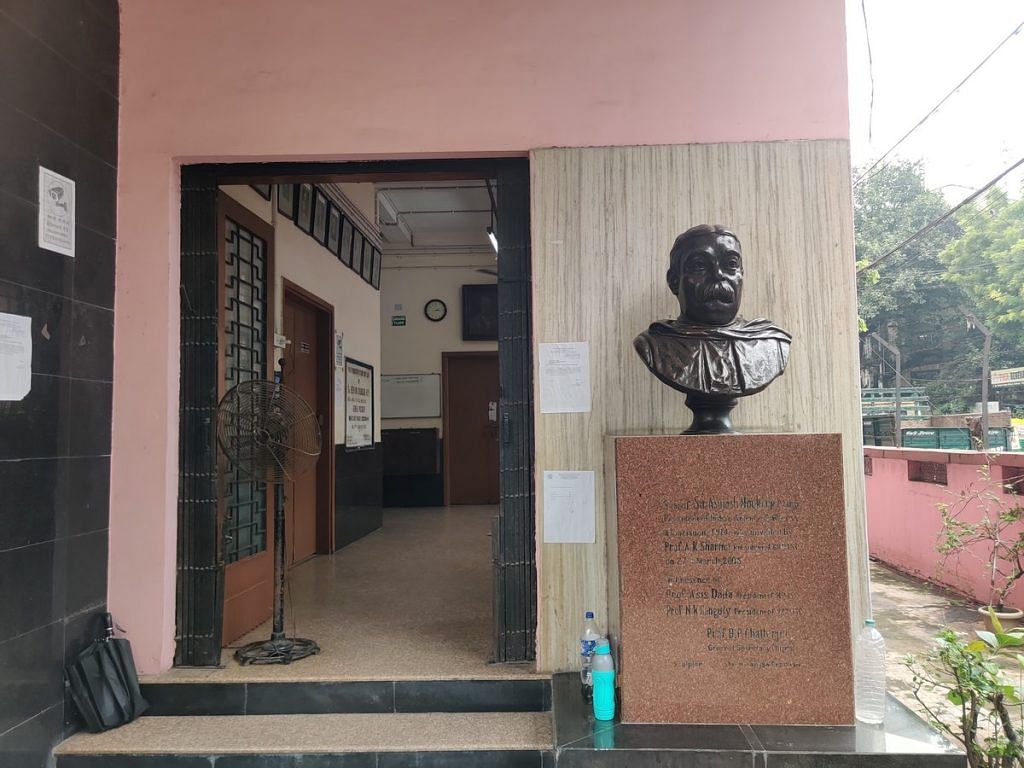
ISCA scientists, however, claim that the growing interference and allegations made by the government are just ways of “arm-twisting the association into submission”.
“The financial statement of the organisation is a public document that is tabled before Parliament every year, and if the government had any concerns about financial irregularities, an explanation should have been sought. But that was not done,” said ISCA’s immediate past general president, Professor Arvind Kumar Saxena.
In 2022, the DST directed ISCA to amend its bylaws to increase transparency of its operations and accountability of its spending. It was presented before the association’s executive council and committee but was rejected.
A proposal to amend the bylaws is first placed before its 10-member executive committee, which examines the submissions and forwards it for discussion before its council. Once the proposal finds support in the executive committee and the council, it is presented for final approval before the general body.
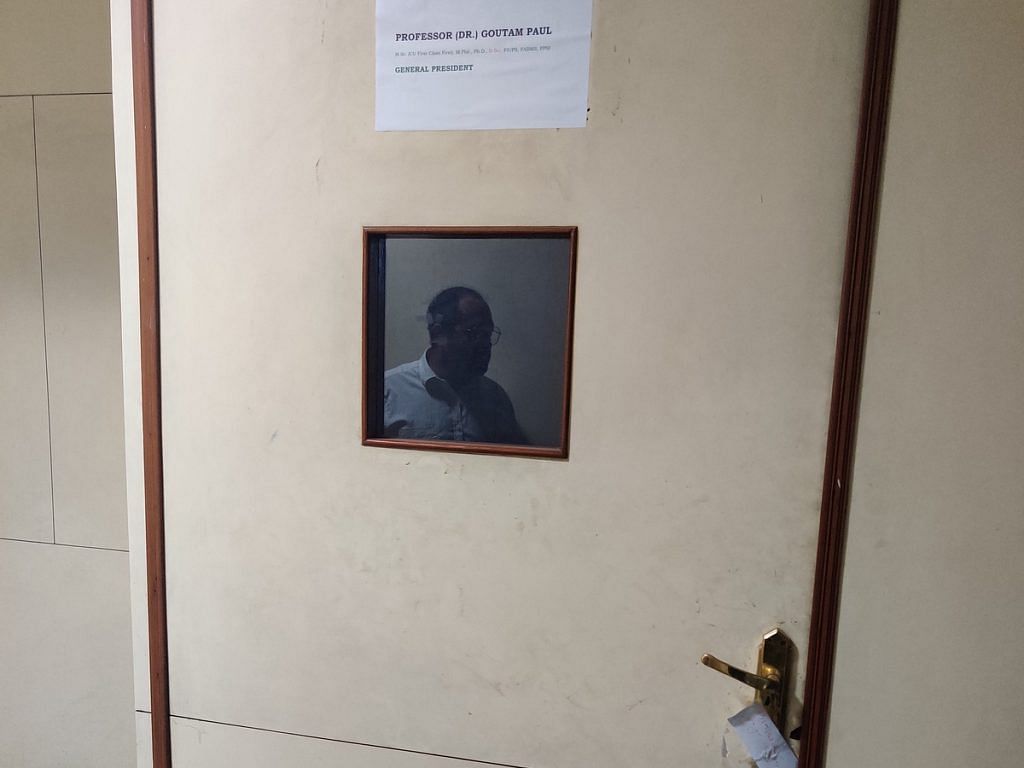
“Changes to the bylaws do not happen overnight. ISCA has its bylaws and autonomy, but the DST wants to impose its own bylaws on us,” Saxena added.
The government’s proposal did not pass muster in the general body.
As ISCA continued to resist the DST’s demands, the cracks began to deepen closer to the 2024 Science Congress. Finally, ISCA filed a writ petition before the Calcutta High Court in November last year demanding the assurance of autonomy.
“After previous failed attempts to interfere in ISCA’s functioning, the government tried to exert its influence over the venue of the annual Science Congress, which was to happen in January this year,” alleged Paul. Two host universities, which were to be the venue of the Congress this year, withdrew support at the last moment.
“The initial venue we had finalised was Lucknow University, but they refused to host the event, citing our petition before the court. We then moved the venue to Lovely Professional University, a private university, but just a few weeks ahead of the conference, even they withdrew support,” said Paul.
The fight between the government and ISCA has another casualty—over 20 employees and 11 pensioners. If the court rules in favour of ISCA, allowing the body to dissociate from DST, these employees stand to lose their salaries and even their jobs.
Differences within ISCA
But all’s not well within the association with a faction of scientists welcoming the DST’s oversight, and questioning the ISCA’s resistance to demands for accountability.
“Some of the former office bearers were happily indulging in the government’s interference. These discussions pushed a certain political agenda. It started with attempts to steer scientific discussions in a certain direction and later came down to altering the bylaws of the organisation,” an ISCA office-bearer said.
Murmurs of discontent that the association is being treated as a “retirement plan” by those at the helm are growing louder.
There is a general financier’s rule, if you are taking funds from someone, you are accountable to them. It is a simple demand. ISCA is 99 per cent funded by DST, we have no other funding source
-Atul Kumar, ISCA executive secretary
“Being an executive council member of ISCA comes with many benefits. This includes free travel, stay, and memberships to top committees. It also guarantees you perks after retirement. Unfortunately, this body has over the years moved away from scientific pursuits and is more focused on treating it as a pension scheme,” said the office bearer who did not wish to be named.
The voice of dissent within the organisation has only grown louder.
Atul Kumar, executive secretary of ISCA, said that only a section of the association has moved court against the government, claiming to represent the entire body. Most members are in favour of increasing transparency in ISCA’s operations, he insisted.
“There is a general financier’s rule, if you are taking funds from someone, you are accountable to them. It is a simple demand. ISCA is 99 per cent funded by DST, we have no other funding source,” Kumar said.
Other former office bearers, too, have voiced their concerns over ISCA’s submissions in court, asking to be detached from the DST if the need arises.
Professor Avijit Banerji, who has previously served as ISCA’s treasurer and general secretary, said that being an autonomous body under DST, ISCA should conform to its rules.
“During my time as treasurer for two years and then general secretary for three years, all office bearers worked closely with the DST, including the selection of the venue for the Science Congress,” Banerji said.
Indian-born structural biologist and Nobel laureate Venkatraman Ramakrishnan has called the Science Congress “a circus where very little science is discussed”.
‘Kumbh Mela of science’
What’s at stake is the science itself.
Several prominent scientists have criticised the growing discussions around “Vedic science” in the Science Congress. This “saffronisation of a century-old institute” crept in after 2014 and is a danger to science, said a scientist asking to remain anonymous.
This battle of ideologies has spilled over from the confines of the ISCA to the entire Indian scientific community.
According to Professor Soumitro Banerjee, former director of the Indian Institute of Science Education and Research (IISER), the quality of research papers and scientific discussions at the Science Congress has deteriorated over the years.
“As a result, most eminent scientists in India do not find any worth in attending it. In some ISCs, completely unscientific ideas have been discussed,” he said.
It all started with the 2015 Mumbai edition of the Science Congress, where a controversial paper on ‘Ancient Indian Aviation Technology’ was presented by Anand Bodas, a former pilot training academy principal, and college lecturer Ameya Jadhav. This was part of the Science Congress’ new symposium, ‘Ancient Sciences Through Sanskrit’ which explored scientific knowledge in ancient Hindu literature.
Many scientists that ThePrint spoke to acknowledged that the change in direction coincided with the BJP government’s rise to power in the Centre.
“But there was no written government order,” said one scientist who did not want to be named.
Paul refused to comment on this.
Discussions on “alternative science” soon became a regular feature in ISCA’s annual conferences.
In the 2019 Science Congress, then Andhra University vice-chancellor G Nageshwar Rao claimed that the Mahabharata’s Kauravas were products of stem cell and test-tube technologies. Another speaker, KJ Krishnan, a senior researcher at Tamil Nadu’s World Community Service Centre, suggested renaming gravitational waves as ‘Narendra Modi Waves’ and the gravitational lensing effect as the ‘Harsh Vardhan Effect,’ after the former Union science and technology minister.
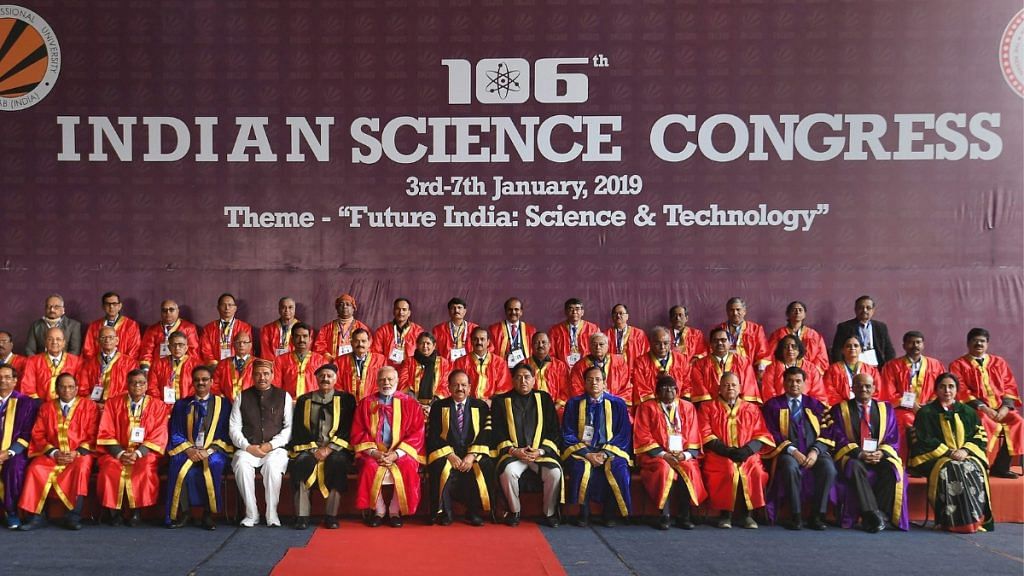
Such statements have met with vehement criticism from colleagues and science students, many of whom have over the years broken away from ISCA.
In 2016, BG Sidharth, the former director of the BM Birla Science Centre, Hyderabad, described the Science Congress the “Kumbh Mela of science”, where nepotism prevailed over quality science work. Indian-born structural biologist and Nobel laureate Venkatraman Ramakrishnan also called the Science Congress “a circus where very little science is discussed”.
It’s a big reputational comedown for the ISCA. The corridors of its headquarters are lined with photos of some of the most celebrated scientists in the country. Its former heads included Prafulla Chandra Ray, CV Raman, SN Bose, and Shanti Swaroop Bhatnagar—all celebrated scientists in their respective fields who were driven by the goal of furthering the cause of science in India.
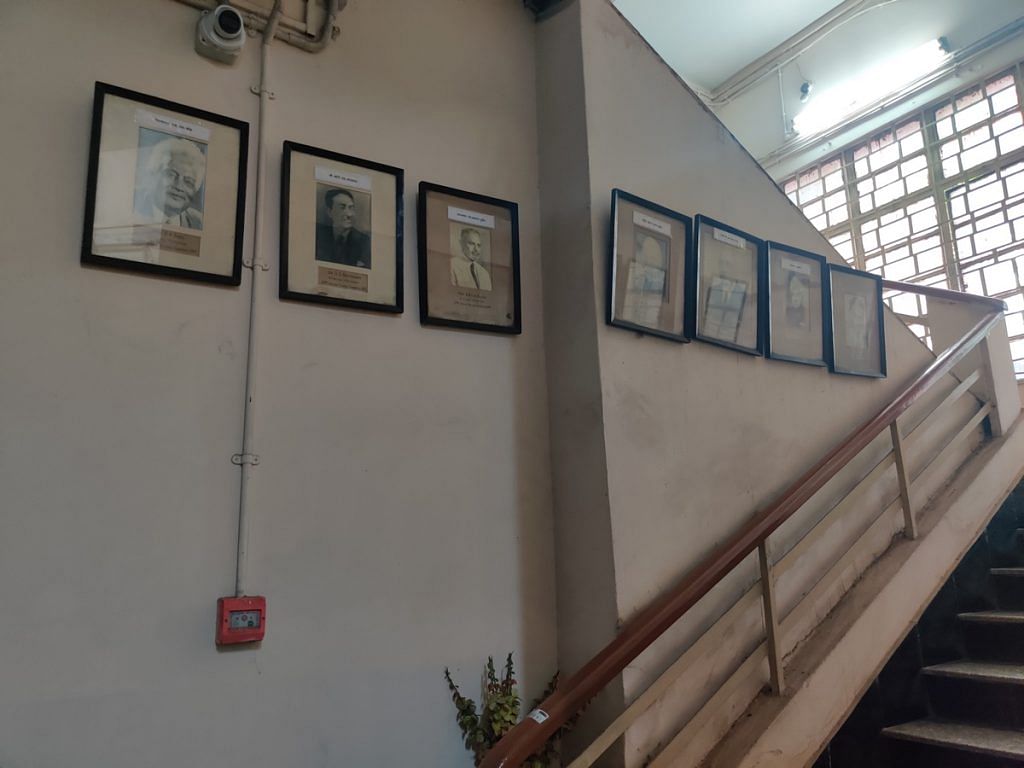
Founded in 1914 by British chemists JL Simonsen and P.S. MacMahon, ISCA was modelled after the British Association for the Advancement of Science. Its annual conference, the Indian Science Congress, quickly became the ‘crown jewel’ of the association.
Over the years, these events have been attended by Nobel laureates like Ada Yonath and Takaaki Kajita, and top scientists from around the world, including Gretchen Kalonji and MS Swaminathan.
Apart from this, ISCA promotes the cause of science and research in India through dedicated sessions for women scientists and children and by providing interactive opportunities with top scientists from across the world.
In its headquarters in Kolkata, old and dusty documents bear witness to the scientific work initiated by the organisation over the decades. Discussions on subjects ranging from climate studies, cholera research, agricultural sciences, experimental training, relativity, and anthropology, were spearheaded at the tables of the Science Congress way before they became a part of the common discourse.
Now, many of India’s top scientists avow that the quality of ISCA’s operations has deteriorated.
Also Read: Gaganyaan to Shukrayaan — new govt to continue focus on R&D, quantum tech & big-ticket missions
Price of autonomy
The fight between the government and ISCA has another casualty—over 20 employees and 11 pensioners. If the court decides to rule in favour of ISCA, allowing the body to dissociate from DST, these employees stand to lose their salaries and even their jobs.
Dipesh Chandra Ghosh, 49, an employee at the Kolkata headquarters of ISCA, has been preparing memorandums, finalising venue details for the Science Congress, and looking after logistics for over two decades now. He describes himself as an “honorary scientist”, being in the constant presence of the brightest scientific minds in the country.
“When we first started hearing about the rift, we all were shocked. I was so stressed that I suffered a stroke in 2022. They (ISCA) say they will suspend employees once they detach from the government,” said Ghosh.
His colleague, Deboshree Dutta, describes it as a classic case of “subjects suffering in a war between kings”.
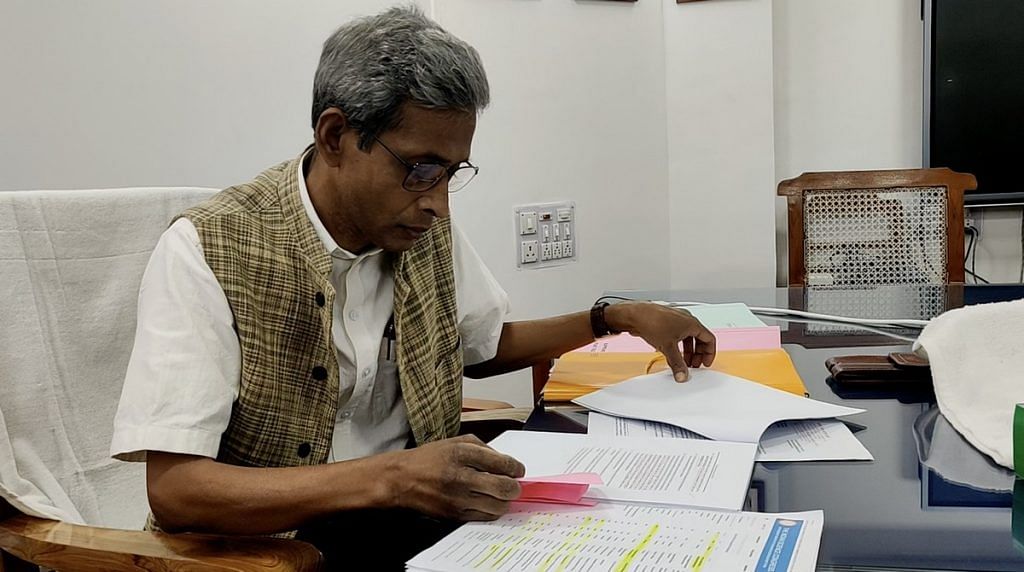
The writ petition filed last November is currently before the Calcutta High Court. Lawyers representing the association predict that the verdict will come out in another two to three months. The court’s decision will change the landscape of this institution one way or the other.
Former IISER director Banerjee said a more amicable solution would have been instituting a stringent review mechanism in ISCA.
“Stopping ISCA under whatever pretext is not the solution,” he said.
Back in his temporary office, Paul prepares for the next court hearing. He meticulously highlights sections and marks pages from ISCA’s original bylaws to assert the body’s autonomous status before the court.
“The cause that we are fighting for—the autonomy of science—is bigger than these concerns,” he said.



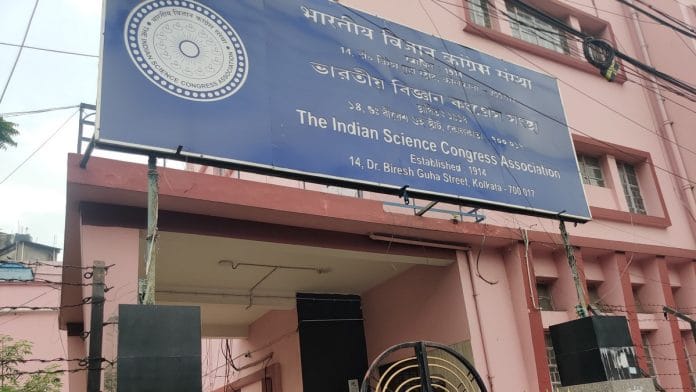



RSS infiltration in such premier science and technology organisations will simply render them unfit for modern science. As it is, the Indian Science Congress has become a laughing stock of the international scientific community after papers were presented on “Aviation technology in ancient India”, “Stem cell technology in Mahabharata” and other such ridiculous topics.
It really is no wonder that no reputed scientist is willing to participate in the annual Congress. It has become a circus. Reflects rather poorly on the state of affairs in Indian science research.
Excellent story, The Print. Please do more such stories.
The world needs to know what is going on in such premier Indian science academies.
The fact that Mahabharata is being linked to modern stem cell research and Ramayana to modern aviation technology is crazy to say the least. Those responsible for auch quackery in the name of science must be named and shamed publicly.
Request The Print to investigate these matters seriously and expose the quacks and the corrupt.